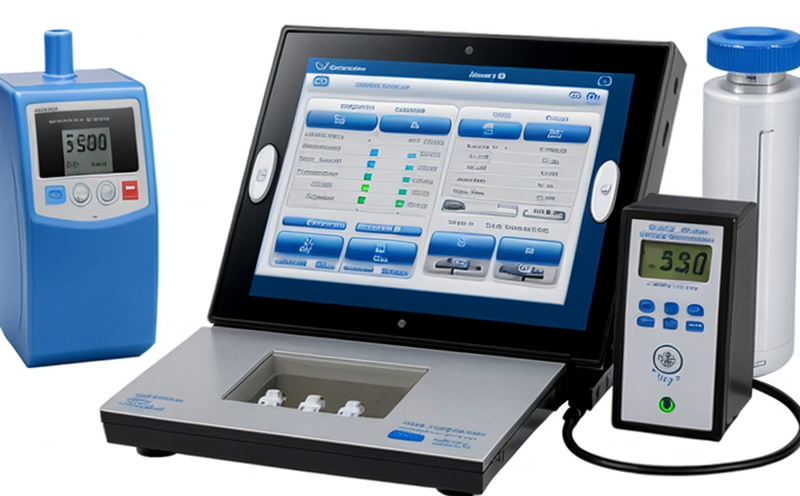Mechanical Durability Testing of Infusion Pump Casings
The mechanical durability testing of infusion pump casings is a critical aspect of ensuring the reliability and safety of medical devices. This test evaluates how well the casing can withstand various environmental stresses, including temperature changes, shock, vibration, and handling forces encountered during use in healthcare settings.
Infusion pumps are essential tools for administering medication or fluids to patients. Their casings must be robust enough to prevent leakage of hazardous materials into the environment and ensure patient safety. The test simulates real-world conditions that the casing might face throughout its lifecycle, from manufacturing to final disposal. This includes exposure to temperature fluctuations, impact forces during transportation, and constant handling by healthcare professionals.
During the testing process, specimens are subjected to a series of mechanical stressors designed to mimic actual usage scenarios. These can include drop tests from various heights onto steel plates, vibration testing over specific frequencies and amplitudes, and temperature cycling between extreme conditions (e.g., -20°C to +60°C). The goal is to identify any weaknesses in the design or material selection that could lead to failure under typical operating conditions.
After undergoing these tests, engineers analyze data collected from sensors embedded within the casing or attached external devices. Key metrics include strain measurements, crack formation rates, and overall structural integrity post-test. These results provide valuable insights into both current product performance as well as potential improvements needed for future iterations of designs.
The importance of mechanical durability testing cannot be overstated when it comes to ensuring patient safety and regulatory compliance. By identifying early signs of degradation or failure, manufacturers can take corrective actions before products reach end-users. This proactive approach helps maintain high standards across the entire supply chain while also reducing risks associated with field failures.
- Ensures long-term reliability of infusion pumps
- Promotes compliance with international standards such as ISO 14711 and IEC 60601
- Safeguards against potential patient harm due to mechanical failures
Scope and Methodology
The scope of this testing encompasses not only the physical structure but also the functional integrity of the infusion pump casing. The methodology involves several key steps, each designed to assess different aspects of durability:
- Preparation: Carefully select representative samples of the casing material and prepare them according to specified dimensions.
- Environmental Conditioning: Subject the samples to controlled temperature changes over time, simulating typical storage environments.
- Mechanical Loading: Apply defined loads using drop towers or shaker tables to simulate handling during transport and installation.
- Visual Inspection: Inspect all samples visually for any visible damage after each test phase.
The methodology follows strict guidelines outlined in relevant international standards like ISO 14711, which specify permissible limits for deformation without compromising functionality. Additionally, the use of finite element analysis (FEA) software allows for detailed simulations before physical testing begins, helping to predict areas prone to failure.
Industry Applications
The application of mechanical durability testing extends beyond just ensuring product quality; it also plays a crucial role in regulatory compliance. Regulatory bodies like the FDA and CE mark require evidence that medical devices meet stringent safety and performance criteria before they can be marketed.
In the context of infusion pumps, this testing ensures that the device remains effective even when subjected to harsh conditions encountered during use. For instance, it helps verify that the casing will not crack or deform under typical operating pressures, thus maintaining precise dosing capabilities throughout its operational life span.
Furthermore, by incorporating durability testing into their development process early on, manufacturers can catch issues before they become costly problems further down the line. This not only enhances product quality but also builds trust with healthcare providers who rely heavily upon these devices for patient care.
Why Choose This Test
- Guaranteed Compliance: Ensures adherence to international standards like ISO 14711 and IEC 60601, crucial for regulatory approval.
- Patient Safety: Prevents potential hazards by identifying weak points in the design early on.
- Quality Assurance: Provides comprehensive analysis of materials and construction techniques used.
- Cost Efficiency: Identifies issues before production begins, saving time and resources.





